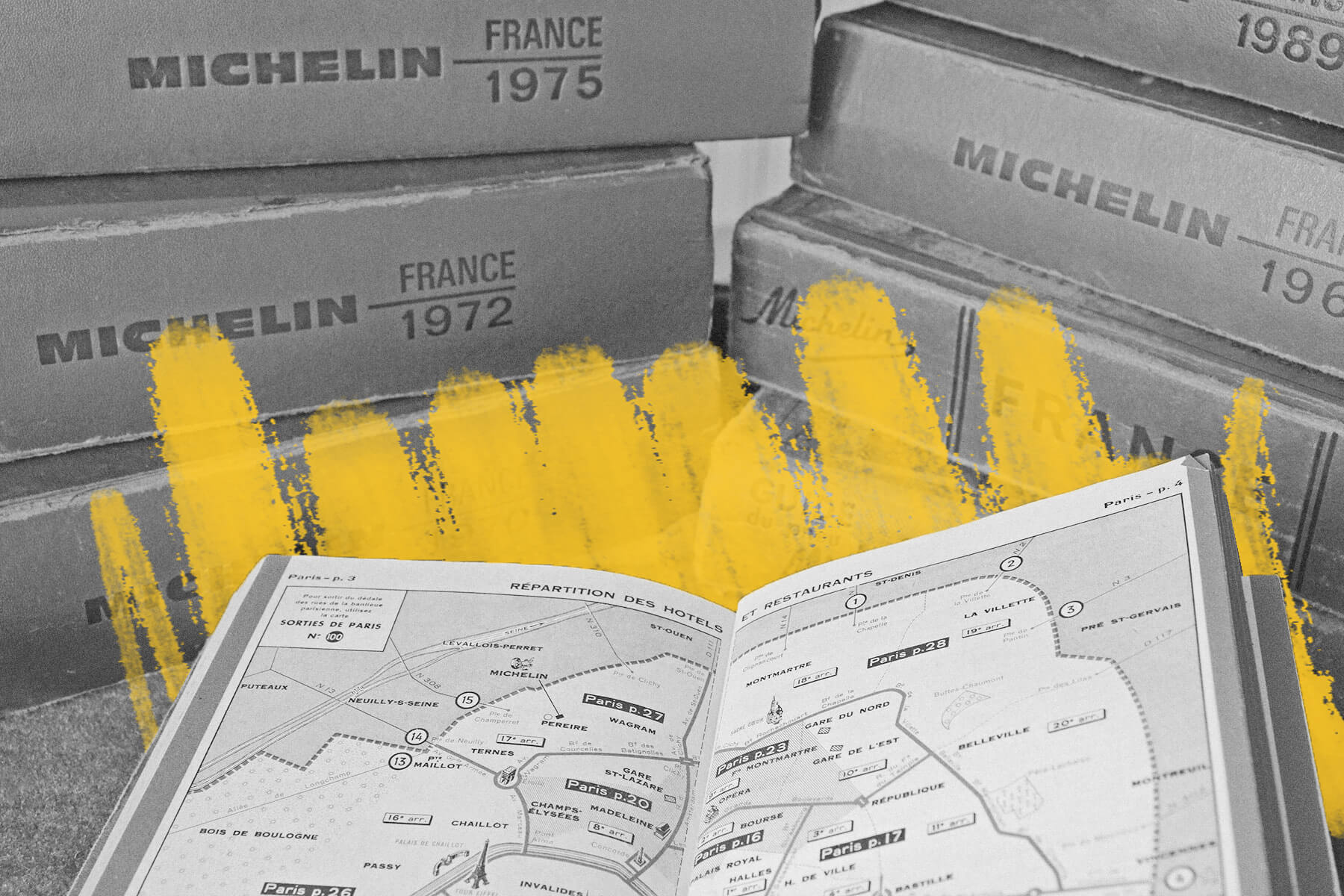Michelin began reviewing restaurants to boost tire sales.
A Michelin star is one of the highest honors in the culinary world, signifying exceptional quality in a restaurant’s cuisine. The coveted rating is considered the authority on fine dining around the world, but the Michelin Guide started as little more than a driver’s roadside companion. In the late 19th century, brothers André and Édouard Michelin founded the Michelin tire manufacturing company in Clermont-Ferrand, France. At the time, the automobile industry was still on the rise, with only around 3,000 cars on the road. In 1900, as a way to promote more automobile travel and, in turn, boost tire sales for their company, the Michelin brothers launched the Michelin Guide. The free book included relevant information for motorists such as maps, tire repair tips, and listings of fuel retailers, accommodations, and places to eat.
As the guide evolved, so did its approach to evaluating dining establishments. Readers showed interest in the restaurant and hotel information, and in the 1920s, Michelin began hiring critics to anonymously assess and review restaurants at length. The famed “star” system debuted in 1926; at first, rankings consisted only of a single star, but by 1931, the three-star system still used today made its debut. A single star denoted “a very good restaurant,” two stars signified “excellent cooking worth a detour,” and three stars represented “exceptional cuisine worth a special journey.” To date, Michelin has sold more than 30 million copies of its guidebooks, and chefs who have been on the receiving end of a star have said that the prestige does indeed increase business. Michelin, however, doesn’t disclose whether the guides are profitable to the company, nor just how many tires the guides have helped it sell.









